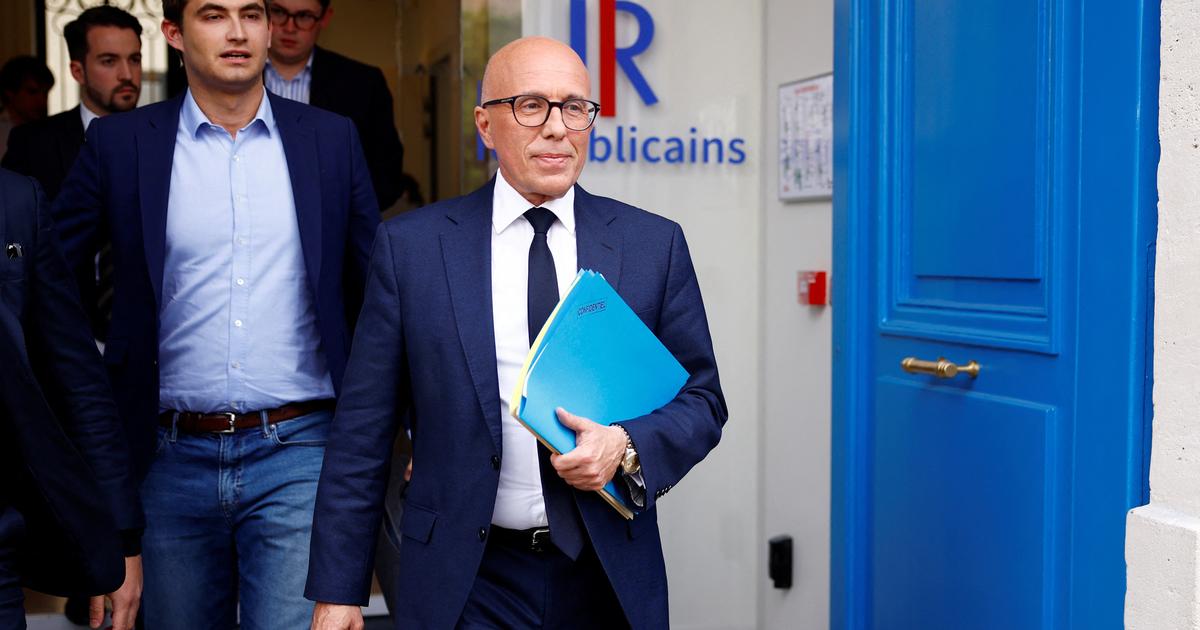The Turmoil Within the French Republican Party
Recent developments within the Republican Party (LR) have sent shockwaves throughout the French political landscape. The catalyst has been the controversial decision by Éric Ciotti, the party president, to explore an alliance with the National Rally (RN). This move has sparked a fierce internal feud, revealing deep divisions among party members and activists.
Survey data from the Odoxa-Backbone Consulting poll reveals that half of right-wing supporters are in favor of collaboration with RN. However, this perspective is not universally shared within the party. David Desgouilles, a prominent columnist and political commentator, highlights that the party's base, especially in rural areas, appears to support Ciotti's decision. Conversely, party leaders and elected officials, particularly those from Île-de-France, are markedly opposed.
The Republican Party has grappled with internal strife for over a decade, with notable ideological and personal conflicts, such as the 2012 Copé-Fillon feud and the 2017 leadership turmoil following Laurent Wauquiez's election. Christian Jacob's leadership aimed at maintaining "household peace" was not enough to resolve underlying ideological rifts.
Ciotti’s Leadership Challenges
Éric Ciotti's recent actions reflect his resolve to transform LR into a coherent and active political entity. Yet, reactions from party executives and senators, condemning Ciotti's approach, underscore a gap between party leadership and activists. For instance, Xavier Bertrand's suggestion to consult activists indicates an awareness of this internal divide.
Despite attempts to maintain unity, Ciotti's decision has been met with significant resistance. This week, he ordered all permanent members to vacate party offices by noon, leading to chaotic reactions from members unwilling to comply. The party's internal discord came to a head when members blocked Ciotti's access to social media and email, with efforts to organize his ousting through an impromptu political office led by Annie Genevard.
Historical Perspectives and Future Implications
The situation evokes historical parallels with the Radical Party, a 19th-century political entity focused on local governance rather than national influence. The editor-in-chief of the Political and Parliamentary Review, Arnaud Benedetti, draws this analogy to underscore the risk of LR becoming a party of local notables if the alliance with RN is not realized.
Éric Ciotti's vision to elevate LR to national prominence through alliances mirrors the left's coalition strategy with LFI. However, his efforts have led to significant pushback, leaving the party at a crossroads. Without a cohesive strategy and consensus, LR faces the potential of further fragmentation and diminished national relevance.
- The future of the Republican Party hinges on navigating these internal conflicts and establishing a clear direction. The ideological split, rooted in both historical grievances and current political ambitions, remains a significant hurdle. The coming months will be crucial as the party seeks to reconcile differences and formulate a cohesive strategy to regain its standing.
- The outcome of Ciotti's bold moves, and the party's response to his leadership style, will likely shape the Republican Party's trajectory in the next election cycle. Meanwhile, the response from grassroots activists versus party elites will continue to play a pivotal role in the unfolding developments.






